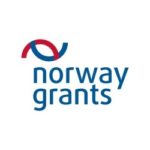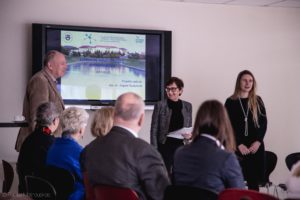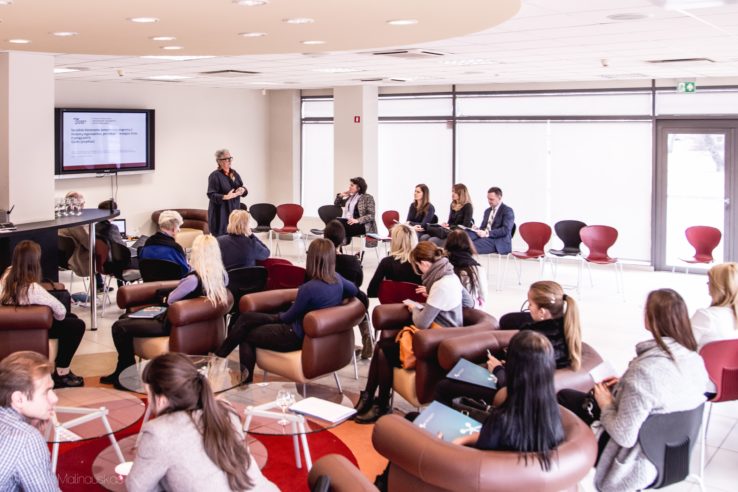Benefits of Social Clustering

Regions of the Country will Become Aware of the Benefits of Social Clustering
 Social clustering is one of the key instruments in Europe, pertaining to social policy modernization and integration. In order to develop the competencies, relevant to public sector and social clustering, in 2015 the project Promotion of Sustainable Development by Strengthening the Social Clustering in Public Sector, financed by Norwegian Financial Mechanism 2009-2014, was launched. The project was initiated by Lithuanian University of Educational Sciences and implemented in cooperation with Norwegian partner „Flexible Education Norway“, Vilnius College of Design, Limited liability company Gintarinė Akademija, Lithuanian College of Democracy, Utena, Druskininkai, Prienai and Birzai District Municipalities and their subordinate institutions.
Social clustering is one of the key instruments in Europe, pertaining to social policy modernization and integration. In order to develop the competencies, relevant to public sector and social clustering, in 2015 the project Promotion of Sustainable Development by Strengthening the Social Clustering in Public Sector, financed by Norwegian Financial Mechanism 2009-2014, was launched. The project was initiated by Lithuanian University of Educational Sciences and implemented in cooperation with Norwegian partner „Flexible Education Norway“, Vilnius College of Design, Limited liability company Gintarinė Akademija, Lithuanian College of Democracy, Utena, Druskininkai, Prienai and Birzai District Municipalities and their subordinate institutions.
 As a project outcome, the country’s researchers have developed the study modules on social clustering aimed at our country’s public sector officials and academic community to facilitate the development of social cluster modeling competencies in order to optimize the implementation of social innovation and as well as to initiate it.
As a project outcome, the country’s researchers have developed the study modules on social clustering aimed at our country’s public sector officials and academic community to facilitate the development of social cluster modeling competencies in order to optimize the implementation of social innovation and as well as to initiate it.
„As every innovation is related to a variety of activities, for its implementation it is necessary to be able to design a cluster, which allows you to search for optimization, relevant to social innovation implementation. The public sector officials have an opportunity to develop the aforementioned competences while studying the modules, whereas the academic community gains knowledge on initiation and implementation of socio-educational innovations, which are enabled by creation of clusters”, declares assoc. Prof. Vilija Targamadzė of Lithuanian University of Educational Sciences.
According to the researcher, social clustering is not a novelty in Lithuania, however the lack of competencies, pertaining to their understanding and design, is obvious. Assoc. Prof. Vilija Targamadzė explains, that in order to deal with emerging social or educational problems, it is necessary to concentrate forces on the resolution of the problems, taking into account their context, relevant to the rise and prospective. However, our experts and public sector officials often lack those competences.
“The famous saying “Think globally and act locally” is a perfect fit for the social cluster development in Lithuania. It is essential for our specialists to be able to identify the common social problems and mobilize the regional forces for the resolution of the issues on a regional level. Such approach would result in creation of significant regional connections, which would ensure the relevant functioning of the social cluster and give grounds for innovative approach in problem solving process”, emphasizes assoc. Prof. Vilija Targamadzė.


